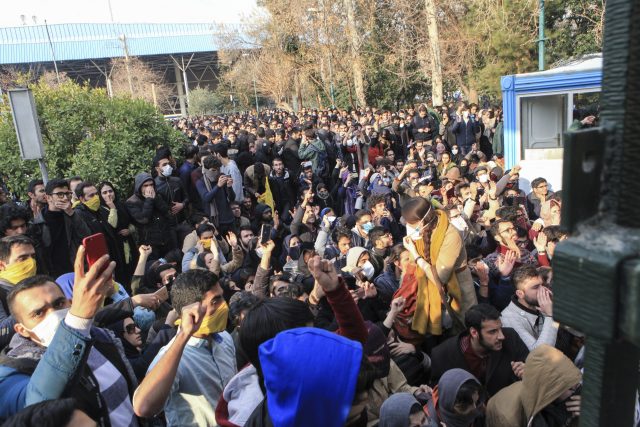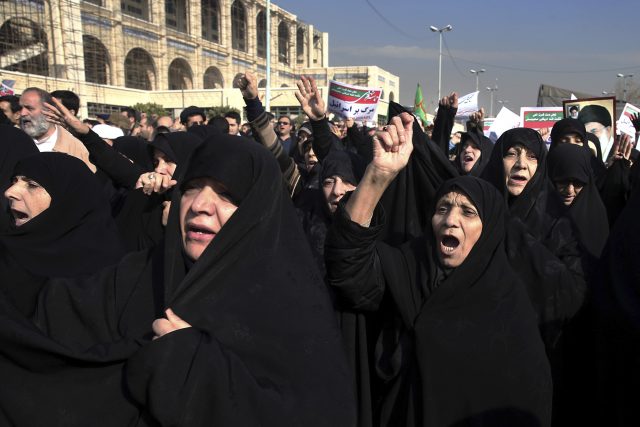Iranians free to protest, president says after two activists killed at rally
The demonstrations appear to be the largest to strike Iran since protests that followed the country’s 2009 presidential election.

Iran’s president Hassan Rouhani has said people are free to protest in his first comments since widespread demonstrations against the government began.
He spoke out as it emerged around 200 people have been arrested in Tehran during protests, while two people were killed at a rally in the city of Daroud, and the government blocked access to messaging apps used by activists.
Mr Rouhani said that public worries extended beyond the economy to corruption allegations and government transparency.

He warned the protests must not be allowed to make the public “feel concerned about their lives and security”.
“The government will definitely not tolerate those groups who are after the destruction of public property or disrupting the public order or spark riots in the society,” he said.
Mr Rouhani also criticised US president Donald Trump over his tweets about the protest, saying he “has forgotten that he had called Iranian people ‘terrorists’ a few months ago”.
Mr Trump tweeted on Sunday: “The people are finally getting wise as to how their money and wealth is being stolen and squandered on terrorism.”
He also tweeted that it looks like the Iranians “will not take it any longer” and added: “The USA is watching very closely for human rights violations!”
His tweets the previous day angered Iran’s government, leading a foreign ministry spokesman to say the “Iranian people give no credit to the deceitful and opportunist remarks of US officials or Mr Trump”.

The protests were fanned in part by messages sent on the Telegram messaging app, which authorities blocked on Sunday along with the photo-sharing app Instagram, which is owned by tech giant Facebook.
Many in Iran are learning about the protests and sharing images of them through Telegram, a mobile phone messaging app popular among the country’s 80 million people.
On Saturday, Telegram shut down one channel on the service over Iranian allegations it encouraged violence, something its moderator denied.





